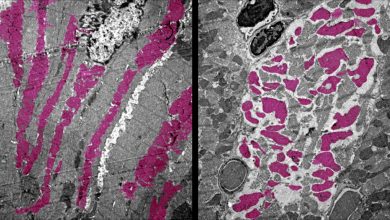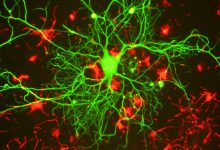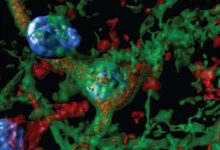
A new study published in American Journal of Psychiatry discovered that elevated amyloid beta level and worsening of anxiety symptoms are closely associated.
Alzheimer’s disease is the neurodegenerative disorder which causes problems with behavior and memory. About 60-70% of dementia cases are caused by this disease. Symptoms become so severe with the time that they interfere with daily task. Risk Factors include genetic susceptibility, depression or hypertension.
A new study in university discovered that elevated amyloid beta level and worsening of anxiety symptoms are closely associated.
The research supports the proposition that neuropsychiatric symptoms could signify the early appearance of Alzheimer disease in the adult.
According to the researchers, the studies done in the past also indicate the relation between anxiety and Alzheimer disease. In patients brain, fibrillar amyloid protein and tau protein starts accumulating during the preclinical phase of development of Alzheimer disease which was suffering from depression and neuropsychiatric symptoms. This preclinical phase can happen way before patient’s beginning of mild cognitive damage.
The study published in American Journal of Psychiatry found out that amyloid beta level is increased when symptoms of anxiety are seen increasing in an individual. This study also designate that neuropsychiatric symptoms can be early manifestation of Alzheimer disease
According to the first author of the study first author Nancy Donovan, MD, a geriatric psychiatrist at Brigham and Women’s Hospital, during their research, they looked at each symptom of depression and compared the amyloid beta level produced in a brain with each specific depression. They looked at all symptoms like sadness, loss of interest anxiety And found out that amyloid beta level increased the highest level in the case of anxiety symptom.
She also added that anxiety symptoms could be the early predictors or indicators of Alzheimer’s disease before the onset of cognitive damage. If anxiety can be an early manifestation of Alzheimer disease, it would be easy to identify the people who are early on with this disease. In the light of this study, it would be easy treating Alzheimer disease patient, and potentially slowing or preventing the disease process early on.
“As anxiety is common in older people, rising anxiety symptoms may prove to be most useful as a risk marker in older adults with other genetic, biological or clinical indicators of high AD risk.
Researchers derived data from the Harvard Aging Brain Study, an observational study of older adult volunteers aimed at defining neurobiological and clinical changes in early Alzheimer’s disease. The participants included 270 community-dwelling, cognitively normal men and women, between 62 and 90 years old, with no active psychiatric disorders.
Individuals also underwent baseline imaging scans commonly used in studies of Alzheimer’s disease, and annual assessments with the 30-item Geriatric Depression Scale (GDS), an assessment used to detect depression in older adults. The team calculated total GDS scores as well as scores for three clusters symptoms of depression: apathy-anhedonia, dysphoria, and anxiety. These scores were looked at over a span of five years.
From their research, the team found that higher brain amyloid-beta burden was associated with increased anxiety symptoms over time in cognitively normal older adults.
The results suggest that worsening anxious-depressive symptoms may be an early predictor of elevated amyloid beta levels – and, in turn, AD and provide support for the hypothesis that emerging neuropsychiatric symptoms represent an early manifestation of preclinical Alzheimer’s disease.
Donovan notes further longitudinal follow-up is needed to determine whether these escalating depressive symptoms give rise to clinical depression and dementia stages of Alzheimer’s disease over time.






